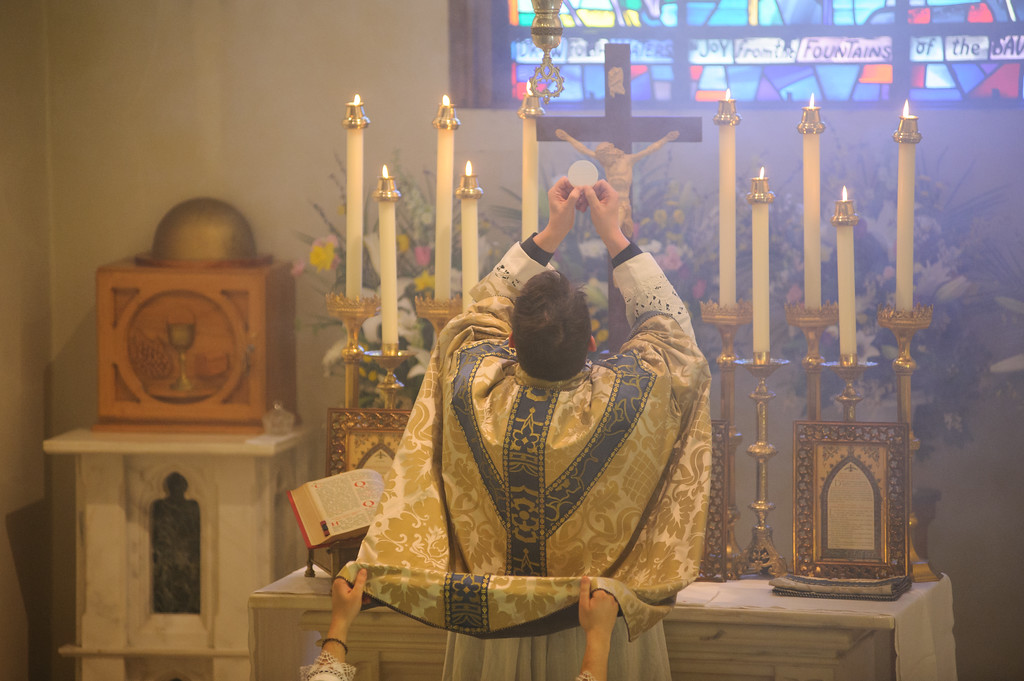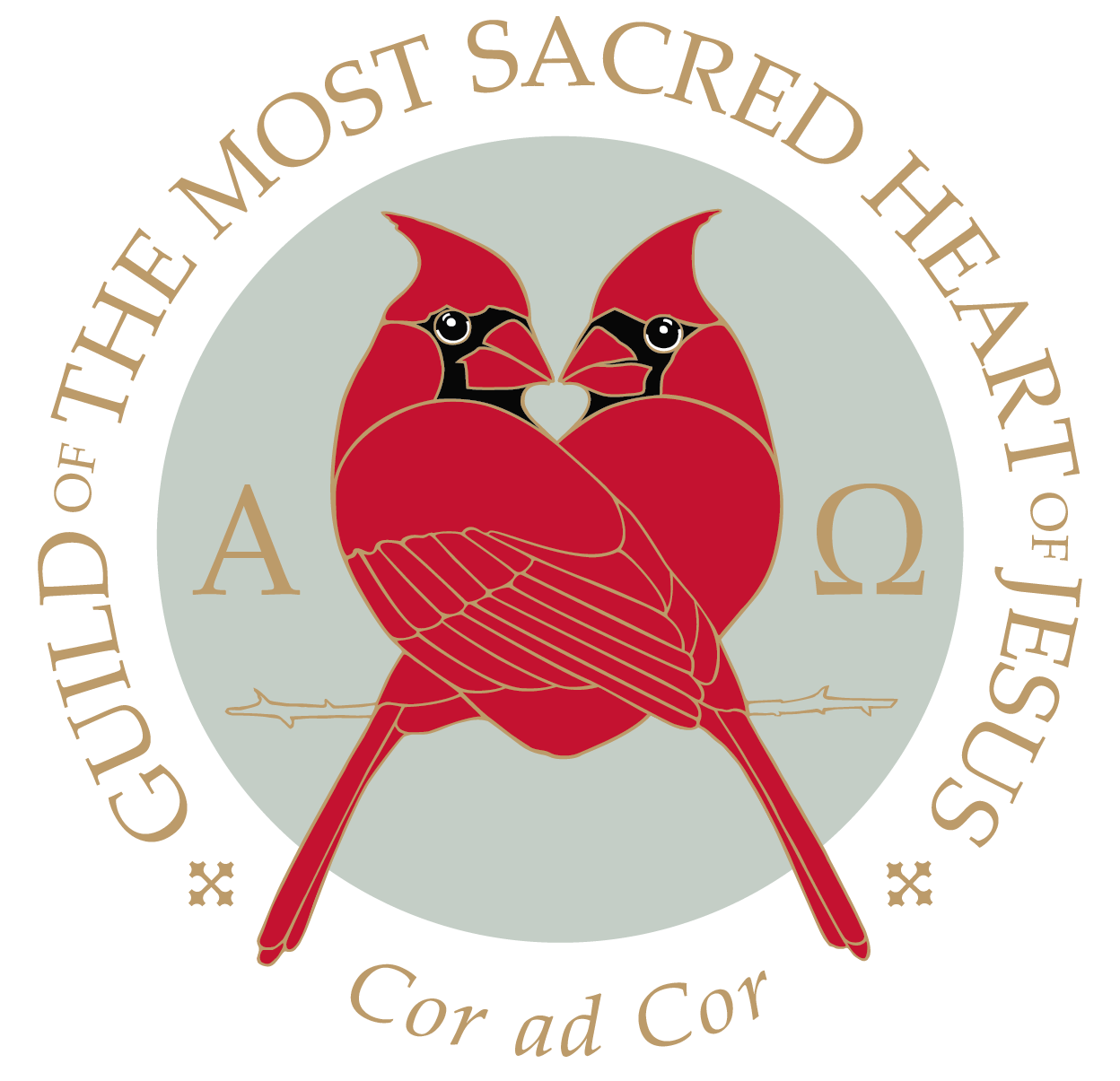
|
I am not quite sure what the Benzinger Brothers were thinking when they translated today’s Gospel passage from Mark. These translations were done rather quickly, because the bishops wanted a translation in the vernacular of the Gospels, and the publishers did their best to do it very speedily. But this is clearly a rather hasty translation of the Sixteenth Chapter of Mark’s Gospel. It is rather direct and not very elegant.
The point is that the Lord has a message for us today on this day of Resurrection: “Go to Galilee!” What a curious thing to say. The first news of the Resurrection, “He is risen. He is not here. Go to Galilee.” Do not hang around where there is opposition: go to Galilee.
Galilee is the place on Earth which has the largest skies in the world, for a very good reason. It is all under sea level, so the sky is bigger than anywhere else on the planet. It is also exquisitely beautiful, and peaceful; the natural beauty of the lake and the gardens on the shores of Galilee is wonderful.
But it was not considered a paradise by devout and pious Jews at the time of Our Lord. Indeed, when Galilee is referenced in the Sacred Scriptures, it is not referenced in a particularly positive way. It is described as Galilee of the Gentiles, or of the Nations. The title was not a compliment; quite the opposite, it was a slur.
Galilee is a place where the religious world and the secular world came crashing into one another. It is a place of encounter. How interesting that on Easter Sunday, we are instructed to go to Galilee. This part of the Gospel leapt out at me in theyear in which our bishop has launched The One, his clarion call to change the culture of the Diocese of Bridgeport from top to bottom; not to change it away from Christianity of course, but to remind it of who Christ is by promoting encounter and accompaniment.
Here at the Oratory, we celebrate a very traditional Mass, but we are by no means backwards-looking, or rigid. In any human institution, there is a need to go back to the beginning of the story; to reset the clock, so to speak, because our structures become polluted with other concerns and ways of doing things that have been imposed from outside. The Church is not a Non-Governmental Organization. The Church is not a political party. It does not intend to box people into any one particular system or another. And where the Church has become politicized or ideological, the Gospel has been smothered.
So my dear brothers and sisters, on this Easter Sunday, I propose to you something different. I propose to you radical fidelity to the Gospel of Christ, radical fidelity to the Person of Christ, radical fidelity to the Church of Christ.
We need to hold ourselves to account, and recognize those areas where we have not been faithful to Christ and His Church. We need to rebuild it from within, taking the lead from our shepherd, Bishop Caggiano, and fostering encounter and accompaniment in our communities, which will become, if we are faithful to the command to go to Galilee, dynamic, new, and vibrant communities of Faith.
This Easter Day we can see Christ pierces the darkness and gloom of night with His irrupting into this world. And He will come once more, but only once more. His first coming and the most evidenced is His Holy Nativity in a cave where He was swaddled. But this Easter morning is, in a way, another coming, in a cave where He was embalmed. The comparison between the Nativity and the Resurrection is clear. When our Lord was born in Bethlehem, in Judea, shepherds came from the country into the city at night, because the angels instructed them that God’s glory was imminent. Peace had come to the earth. In this Easter night, witnesses go out from the city into the country to the garden, where they find angels who instruct them: “The Lord has risen. He is not here. Do not be afraid, but go to Galilee.”
In His Holy Nativity, the Lord was visited by three Magi. They brought gifts of gold, frankincense and myrrh. In this coming, He is visited by the three Maries, and they bring aloe, myrrh and spices for anointing. It is exciting when the Sacred Scriptures cross-reference themselves like that. But they do so not because they are trying to play a clever literary game, but because God Himself is consistent, and He gives us a calling card of who He is, so that we might recognize Him. If we pray with the Scriptures, we will see the links between the Nativity and the Resurrection: the cave, the swaddling clothes and the bands; the shepherds and the fishermen, the Magi and the Maries. It is all beautifully woven together, so that we might have the information we need to recognize His third coming in power.
These first comings are in humility, and, to some extent, in secret. The third coming at the end of time will be for everybody to see. No one, not one soul standing upon this earth, will be able to deny His coming. But to recognize the clues as to who it is that is coming, we need to go to Galilee, to focus upon the Lord Himself, and not to any human overlay. Such structures assist, but they do not dominate. They do not propose the Gospel: Christ proposes the Gospel. We need to lean into Him in order to hear what that Gospel is; not in the great cathedrals, not in the cities, but on the mountain, in the country, in Galilee, like He told us.
Brothers and sisters, we have a chance to make this beautiful church in Georgetown, which has been revealing itself, its character more and more to us as we have journeyed together through Holy Lent into Easter, our own Galilee. We are not in the city. We are not bound by the old structures that have failed us. We have the opportunity to lean in to the breast of Christ. We will worship in Spirit and in Truth if we heed the call to go to Galilee.
This community is rooted in the earth. It is rooted in normal, everyday life with regular, everyday folk; not grand folk, not pretentious folk, not folk that think too much of themselves, but simple and honest folk who desire so dearly to follow Christ, and in so doing to have His joy, the joy and peace that the world does not offer. And yes, with that joy of following Christ also comes fun along the way. Friendship in Christ is not meant to make our lives more difficult or less pleasant; quite the opposite. Friendship with Christ makes our lives full of joy. That’s not to say that they will always be full of happiness, but full of joy.
Our friendship with Christ depends upon radical fidelity unto death. We have the opportunity to heed the call of Christ, to build such a community here. It has being offered to us. It is right there. It is low-hanging fruit, ripe for the plucking. We must dream big. Nothing is impossible with God. Brothers and sisters, in this Paschal season, we have been offered new life, a new start. Having moved out from darkness into light, let us not seek after the darkness anymore, but walk forward in the light, radically faithful to Christ, to the Gospel of Christ and to the Church of Christ. Happy Easter.
PRAY
